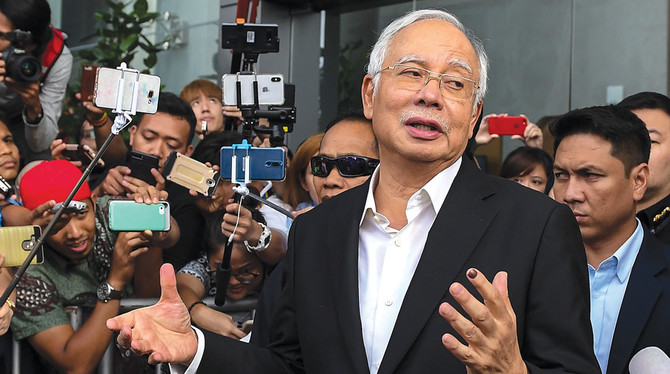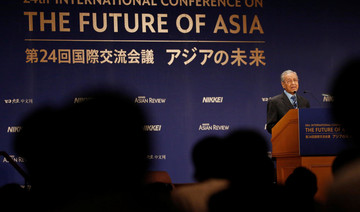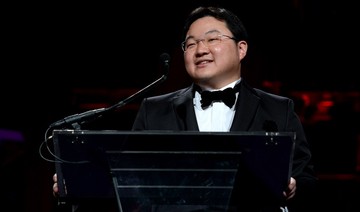KUALA LUMPUR: Malaysia has been a loyal partner in China’s globe-spanning infrastructure drive, but its new government is to review Beijing-backed projects, threatening key links in the much-vaunted initiative.
Kuala Lumpur’s previous regime, led by scandal-mired Najib Razak, had warm ties with China, and signed a string of deals for Beijing-funded projects, including a major rail link and a deep-sea port.
But the long-ruling coalition was unexpectedly voted out last month by an electorate alienated by allegations of corruption and rising living costs.
Critics have said that many agreements lacked transparency, fueling suspicions they were struck in exchange for help to pay off debts from the financial scandal which ultimately helped bring down Najib’s regime.
The new government, led by political heavyweight Mahathir Mohammed, has pledged to review Chinese deals seen as dubious, calling into question Malaysia’s status as one of Beijing’s most cooperative partners in its infrastructure push.
China launched its initiative to revive ancient Silk Road trading routes with a global network of ports, roads and railways — dubbed “One Belt, One Road” — in 2013.
Malaysia and Beijing ally Cambodia were seen as bright spots in Southeast Asia, with projects in other countries often facing problems, from land acquisition to drawn-out negotiations with governments.
“Malaysia under Najib moved quickly to approve and implement projects,” Murray Hiebert, a senior associate from think-tank the Center for Strategic and International Studies, told AFP.
Chinese foreign direct investment into Malaysia stood at just 0.8 percent of total net FDI inflows in 2008, but that figure had risen to 14.4 percent by 2016, according to a study from Singapore’s ISEAS-Yusof Ishak Institute.
However, Hiebert said it was “widely assumed” that Malaysia was striking quick deals with China in the hope of getting help to cover debts from sovereign wealth fund 1MDB.
Najib and his associates were accused of stealing huge sums of public money from the investment vehicle in a massive fraud. Public disgust at the allegations — denied by Najib and 1MDB — helped topple his government.
Malaysia’s first change of government in six decades has left Najib facing a potential jail term.
New Prime Minister Mahathir Mohamad has announced a planned high-speed rail link between Kuala Lumpur and neighboring Singapore will not go ahead as he seeks to reduce the country’s huge national debt.
The project was in its early stages and had not yet received any Chinese funding as part of “One Belt, One Road.” But Chinese companies were favorites to build part of the line, which would have constituted a link in a high-speed route from China’s Yunnan province to trading hub Singapore, along which Chinese goods could have been transported for export.
Work has already started in Malaysia on another line seen as part of that route, with Chinese funding — the $14-billion East Coast Rail Link, running from close to the Thai border to a port near Kuala Lumpur.
Mahathir has said that agreement is now being renegotiated.
Other Chinese-funded initiatives include a deep-sea port in Malacca, near important shipping routes, and an enormous industrial park.
It is not clear yet which projects will be amended but experts believe axing some will be positive.
Alex Holmes, Asia economist for Capital Economics, backed canceling some initiatives, citing “Malaysia’s weak fiscal position and that some of the projects are of dubious economic value.”
The Chinese foreign ministry did not respond to request for comment.























